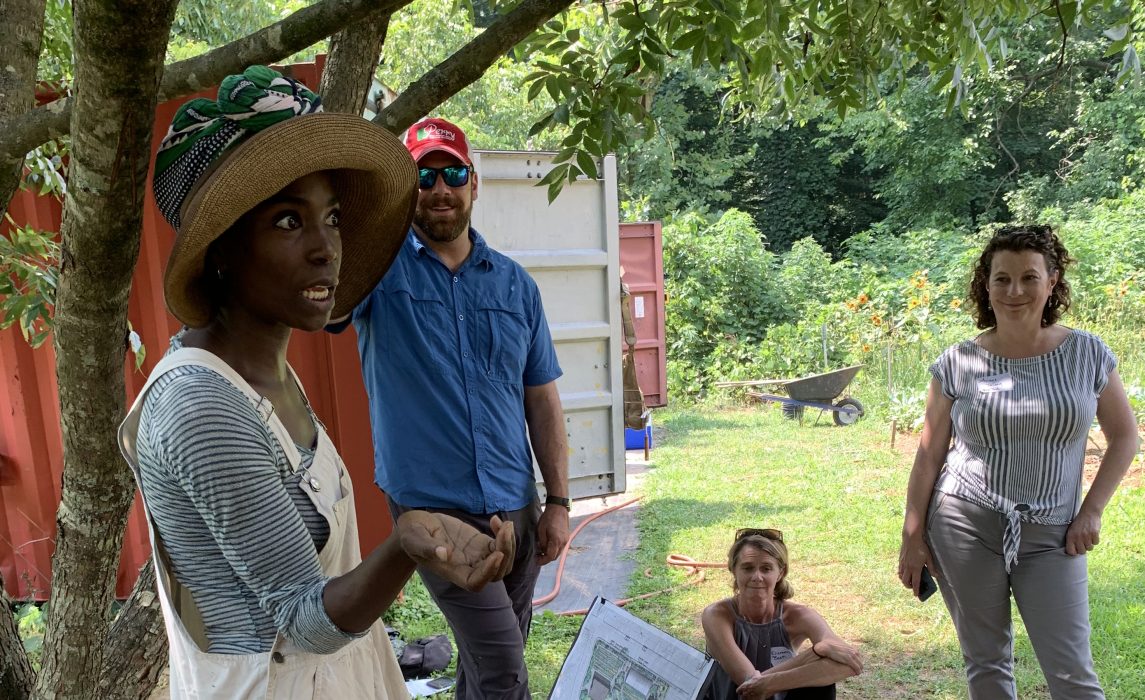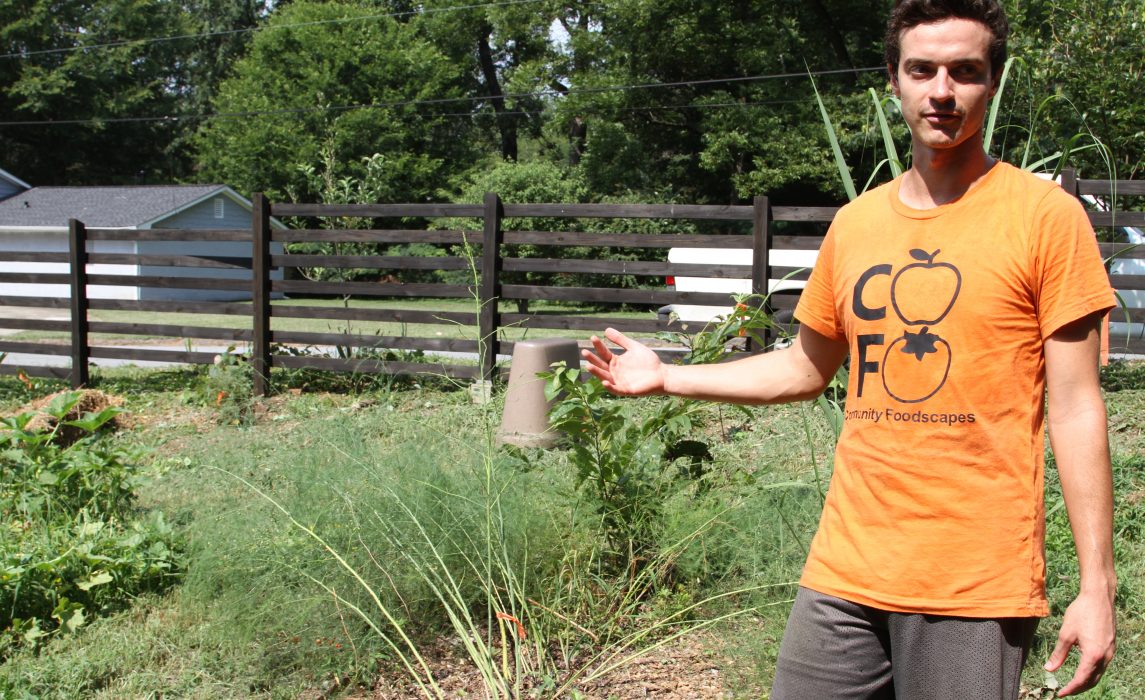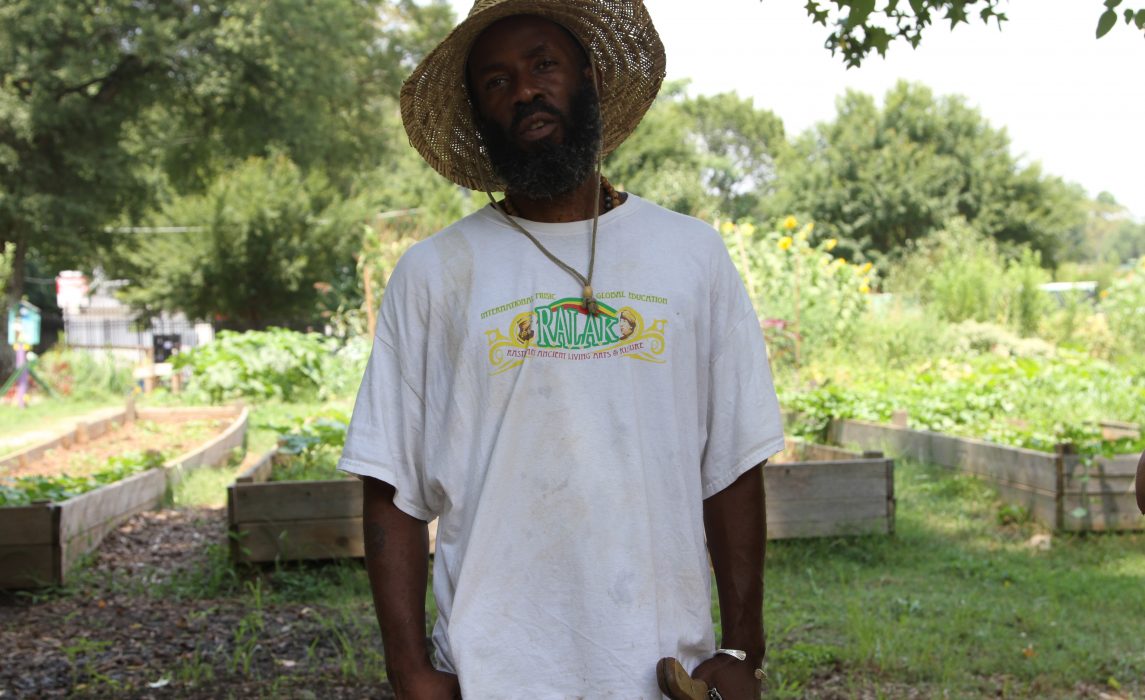Atlanta Engages Citizens to Grow Fresh Food and Community Connections
This story is part of a series about the 2019 Engaged Cities Award finalist cities and how they partnered with residents to transform their communities. Learn more about the award here.
Residents of many Atlanta neighborhoods do not have easy access to grocery stores or fresh food. Many of those same neighborhoods, however, have unused or abandoned outdoor space and experienced gardeners.
“There are challenges to growing in the community and getting it to the community,” said Jamila Norwood, one of those experienced gardeners. “Community members need to be able to get to where the food is, have an income to purchase it, and have the time and ability to cook it.”
“This program brought new partners to the table. It’s an opportunity for us to get better at telling our story and inviting people into those conversations.”
With AgLanta Grows-A-Lot, the city is tapping into the existing urban farming movement, with the help of people like Norwood, to bring fresh food to neighborhoods in need.
Norwood is on the advisory committee for the program, which helped the city create an application process and identify vacant land suitable for gardening and urban farms. Mario Cambardella, Atlanta’s Director of Urban Agriculture, worked with the committee, and conducted a listening tour to get additional feedback from residents about how community gardening and farming might work in their neighborhoods. Cambardella and Elizabeth Beak from the Department of City Planning also acquired grant funds to support new gardens as they work to create site plans and get permits to use the land.
Through Grows-A-Lot, community members can adopt the land and work with experienced gardeners to begin producing food for the neighborhood.
The Campbellton Community Garden is one such garden. Janis Upshaw helped start the garden with the help of Mike McCord, a master gardener. Upshaw has to take two buses and a train to get to the nearest grocery store, so the value of a neighborhood garden was clear to her.
“We get a lot of support from the city. We are empowering people.”
McCord and Upshaw received a five-year lease on the land, and together with their neighbors, they’ve turned an overgrown lot full of trash into a garden with 23 plots, where community members can grow food.
Truly Living Well is an organization that supports Grows-A-Lot, helping novice gardeners and would-be farmers. “We start with their intentions and ask, ‘What do you want to get out of this program?’ Answers range from ‘the ability to plant a garden’ to ‘understanding the science of the soil,” said Kofi Kwayana, Urban Agriculture Training Manager for Truly Living Well. “They learn lifelong lessons here.” Kwayana helps community members figure out how to create new gardens and talk about the importance of food to a healthy life.
The creation of AgLanta, which includes Grows-A-Lot and other urban agriculture initiatives, has also helped the more experienced farmers expand their work and their audience. “We get a lot of support from the city. To have a director of urban agriculture in the city is serious. It says a lot about the evolution of consciousness,” said Kwayana. “We are empowering people.”
Atlanta’s approach of bringing stakeholders together, like this network of experienced urban farmers, has helped them build community buy-in, make strong partnerships, and set the program up for success.
“Food security is one of eight priority issues we’re working on,” said Rashida Winfrey, Chief Service Officer for Atlanta. “This program brought new partners to the table. It’s an opportunity for us to get better at telling our story and inviting people into those conversations.”
The community gardens and urban farms are part of the city’s strong commitment to addressing the lack of access to fresh food in the city. The AgLanta initiative also includes the Urban Food Forest at Brown Mills, the largest urban food forest in the country. The seven-acre food forest will produce nuts, fruits, vegetables, herbs, and mushrooms for the community to eat. It also serves as a workforce training site for young adults and residents of a nearby homeless center, hosting 50-100 volunteers per month.
As the Urban Food Forest at Brown Mills and the other urban farms grow, they will continue to increase access to fresh, healthy food for people who would otherwise have to travel a long way to the closest grocery store.



